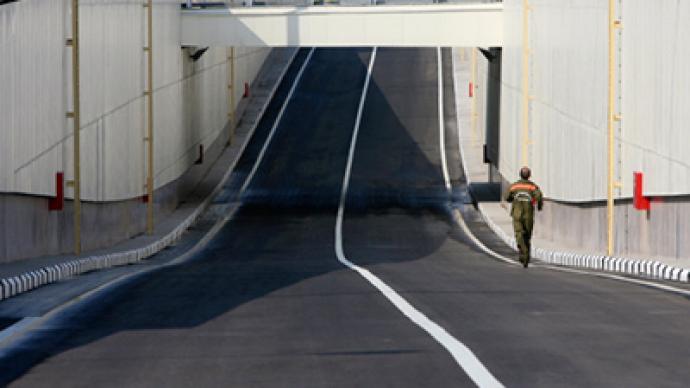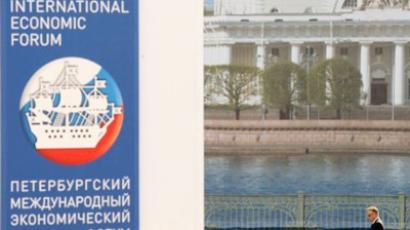Russia readies to move power bodies out of Moscow

Russian society has reacted animatedly to President Medvedev’s suggestion to enlarge the area of the City of Moscow and to move some offices of bodies of power out of Moscow, which will help to relieve the problems of Russia’s largest megalopolis.
Speaking before the participants of the world economic forum in St. Petersburg on Friday, President Dmitry Medvedev said that the boundaries of Moscow must be enlarged, so that a Federal Capital District is created. The president said that this would improve the development of the Moscow megalopolis, benefit the financial center and simply make life easier for a great number of people.Presently, the City of Moscow and the Moscow Region are two different jurisdictions of the Russian Federation, with separate financing and separately appointed leaders. At the same-time, the growth of the City of Moscow has led to its de facto merger with some districts of the region and the separated authorities found it more and more difficult to solve certain transport and social issues. Thus in 2010, Moscow and the Moscow Region announced they were creating a united collegiate of executive bodies of power for solving transport problems. The two administrations have also developed and signed a unified plan for construction, natural resources, consumer markets and funeral services. Russian political circles immediately reacted to Medvedev’s words. Presidential aide Arkady Dvorkovich said that the decision was strategically important. The official elaborated on the plan saying that it envisaged the creation of a new capital district and most importantly – moving the offices of state agencies beyond the ring road and outside the traditional city limits. Dvorkovich said that the move would help to solve the transport problems and help ordinary Muscovites who were, according to the official, “constantly suffering from cars equipped with [blue] flashing lights,” referring to high officials who have traffic precedence.Besides this, the transfer of government headquarters would improve the city’s appearance, as a great number of buildings in Moscow center now belong to the government. Dvorkovich gave no exact dates or plans of the changes in the capital region, but said that President Medvedev knew concrete decisions and will most likely voice them in the nearest future. Moscow Mayor Sergey Sobyanin said that the transfer of government offices meant that Moscow would soon have a satellite city that will unite such offices and all supporting infrastructure. The mayor opposed the idea of spreading the government bodies over the territory of the Moscow Region and stressed that concentrating them in a single place could give a better boost to the development of the region. “In essence, this means the creation of a modern satellite city within Moscow boundaries,” Sobyanin said.The mayor also stressed that so far the merger of the City of Moscow and the Moscow Region was not on the agenda. He said that the question was only in moving government offices beyond the Moscow Ring Road and, for this purpose, enlarging the city limits. Sobyanin said that no referendum was planned on the subject – only an analysis of opinions both of ordinary residents and civil servants.The Moscow City Legislature has also supported the creation of the new, larger capital district. Deputy Head of Staff of the State Duma Yuri Shuvalov told reporters on Friday that a special complex that would house the upper and lower houses of the Russian parliament will be built beyond the Moscow Ring Road within the next five years. He added that the construction would need additional investment, but the result would justify the costs.At the same time, other officials said they had no information about moving the parliament or presidential administration away from central Moscow and the head of the State Duma regulations committee, Otari Ashba, told reporters that he had information that the new parliamentary center would be built in the place of the razed Hotel Russia, right near the Kremlin.Medvedev’s idea drew positive comments even from members of parliamentary opposition. The chairman of the Fair Russia political party said that moving the government offices would allow civil servants to better understand the needs of the common people and common people would feel more sympathy for those who voluntary go to a remote region to work. The head of the Liberal Democratic Party, Vladimir Zhirinovsky, also supported the move and urged that a special law be adopted as soon as possible, with a federal minister put in charge of the new federal district instead of the regional governor or the city’s mayor.














